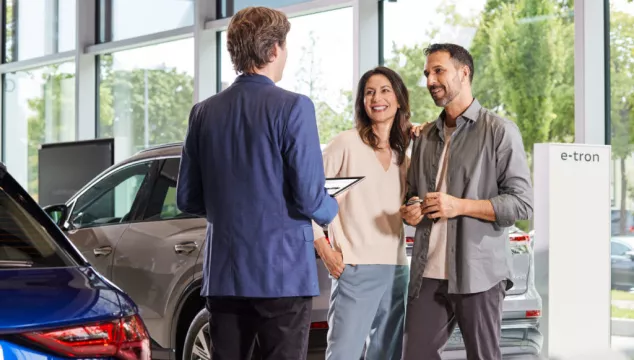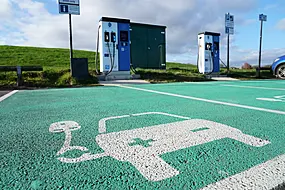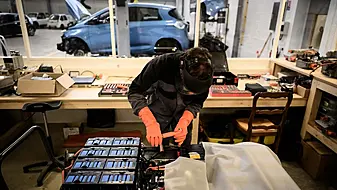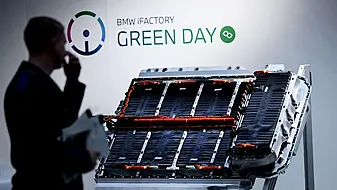Almost all new car purchases (and a chunky majority of used ones) are funded by taking out a loan of some sort. An estimated 46 per cent of us intended to use a finance product to purchase our next car, according to a survey by Carzone, and that’s taking into account all car purchases, even used vehicles costing less than €1,000.
PCP (Personal Contract Plan)
The most popular form of finance right now, taking up more than half of all new car purchases, is the PCP, or Personal Contract Purchase. The PCP is a form of car finance first introduced in Europe by Ford Credit in the 1990s, but which has really gained a stranglehold in the Irish market since the early 2010s.
Basically, it’s like a combination of a lease and a deferred loan.
The finance provider — which might be one of the big high street banks, or a car maker with its own in-house financial arm — is basically betting against the future used value of the car.
This is called the Guaranteed Minimum Future Value or GMFV, and it’s what the finance company reckons the value of the car will be at the end of the loan period — usually three years.
By assuming that the car will be worth that amount, that amount can then be taken off the loan, and put to one side. Basically, you’re using that as collateral.
Next up is the deposit, which will usually be the value of the car you’re trading-in. The experts say that around a 20 per cent deposit is the sweet spot when it comes to PCPs. Deposit more, and you’re not getting the benefit of the way a PCP is structured.
Your repayments are then calculated on all of this — the deposit amount, the GMFV, and what’s left of the total cost of the car.
Generally, a PCP will be able to offer quite low monthly repayments as you’re essentially deferring such a big chunk of the loan — the final payment which will in theory be covered by the GMFV — to the end. This is how car makers and dealers are able to advertise such tempting repayment figures.
At the end of the loan, you have three choices — you can hand back the car, which pays off the final payment, and you walk away (literally walk away, as you now have no car). Or you can roll the agreement over.
In theory, if the finance house has done its sums right, your car’s actual used value will cover the final payment and still have enough equity to act as a deposit for your next car. Or, if you’ve been really diligent, you’ll have saved up the amount of the final payment, and can pay it off, keeping the car.
The downsides? If the used car market takes a downturn, then the deal has essentially insulated you from the fall in second hand values and you’re guaranteed to have your final payment covered.
On the other hand, if this happens, you might not have any equity in the car at the end of the deal, above the final payment value, so you’ll be banjaxed for your next deal.
Equally, if you’ve decided to pay and keep the car, you may be paying above the market odds to clear the final payment. This hasn’t really happened very much yet, because the second hand market has stayed buoyant, but it’s still a risk factor.
Equally, until the final payment is made, you technically do not own the car and there are some small-print clauses about what kind of condition the car must be kept in, which can lead to unexpected extra expense at the end of the deal.
Is a PCP right for you? It is, as long as you either plan to change your car fairly regularly and are happy to roll the deal over into a new one, or you’re careful enough with money to be able to put aside the value of the final payment.
Just be wary, as you should be of any finance package — don’t be tempted by the dangling low monthly repayments into signing up for something you’re not quite happy with.
Also, remember that there’s no such thing as a free lunch — the lower repayments and, often, lower interest rates of a PCP deal are there because the car maker reckons it’s a good way of getting you back in three years time to buy another car.
Hire Purchase
This is a much more traditional way of buying a car. You simply pay a deposit, sign up for monthly repayments, and at the end of the loan period you own your car.
The downside? Without the financial sleight-of-hand that’s inherent to a PCP, your monthly repayments will be higher, and in general — but not always — HP deals come with a higher interest rate than a PCP.
HP is a better deal for those who can’t be doing with the complication of a PCP.
Personal loan
There is a pleasing simplicity in taking out a personal loan for a car, as you can just rock up at the dealership with a bag of cash (or more likely a banker’s draft) and dictate terms to the dealer who’ll be hungry for a fast sale. Well, sort of…
There is some truth in the theory that a cash buyer can strike a better deal, but there are limits. Car dealers tend to be working on incredibly narrow margins when it comes to new car sales — four per cent is generally considered to be a good rate — so their room for manoeuvre is slim when it comes to handing out discounts.
Equally, most finance packages come with some sort of bonus payment for the dealer for signing you up, so there’s not the incentive to send a car out of the door quickly for cash that there used to be.
The best way to do a cash deal is to time it carefully — wait till the end of the quarter or half year, when dealers are trying to make sure they’re hitting their sales targets, and be prepared to buy from stock.
It’s worth remembering that a high street bank or credit union loan will often come with a higher interest rate than a car-dealer-provided finance package, and that the bank only cares about the money — if there are any issues further down the line, a manufacturer-backed finance package will be more focused on keeping you in your car than will a bank.
Then again, you’ll own the car from day one, with no limits on condition and mileage, and there is something rather satisfying about that.
Personal lease
This is a relatively new way of putting a new car on your driveway in Ireland, but the big leasing companies — such as LeasePlan — are now offering deals to private individuals as well as big company fleet buyers.
What are the benefits? In many cases, the monthly cost of a personal lease is lower than that of a PCP or HP plan, and many leases also offer the option of rolling in maintenance and servicing costs too.
Deposits also tend to be lower, and there are no balloon payments to worry about. Many leasing agreements also include the possibility for an early trade in and replacement, so if you’re someone who liked to chop and change your car regularly, this can work well for you.
The downsides? Well, you won’t own the car, ever.
Most personal leases don’t come with the option for you to buy the car at the end of the agreement, and the ones that do tend to have a higher purchase price than the average market value.
Because you don’t own the car, that means that there are strict limits in terms of the maximum mileage you can cover, and the condition in which the car must be kept. Going over those limits can involve some pretty stiff penalty payments.
On the other hand, a leasing deal effectively insulates you from the depreciation of the car — you’re paying to use it, not own it after all — and depreciation is still, even among all the other spiralling car expenses, the biggest cost of all when buying a new car.
Leasing may also be a good option for those looking to go electric, as the quick-change option can put you into a newer, higher-tech model more easily as battery and electric technology evolves.
What the future holds
Car makers and sellers are expanding the range of options they offer the customer to try and keep up with changing demands and desires, but some feel that the traditional selling model will be here for a while yet.
“For the moment we at Peugeot are focussing on traditional HP finance along with PCP,” says Ciaran Cusack, marketing manager for Peugeot Ireland.
“Although we have no current plans to introduce them, some of the newer subscription and personal leasing finance options will suit some people, but not all.
From speaking with our customers and dealers, we can see that some people like the flexibility of PCP with lower payments and access to an up-to-date model, but other people prefer the sense of ownership and opt for traditional HP or even cash. We see this trend continuing in the Irish market for some time.”
Others see things changing rapidly, even while Ireland remains a relatively traditional market.
Kieran Campbell from Polestar told BreakingNews: “Ireland is predominately a retail new car market versus the UK and Central Europe, which are more fleet dominated.
"A retail customer in Ireland can of course pay for their car with cash but for new cars this is not the norm. On average 50-80 per cent of new cars are bought via PCP or more traditional hire purchase. The option you choose is down to annual kilometres driven — for up to 20,000km per year, PCP is best.
"For higher mileage users, HP is more suited. PCP is generally over 36 months and HP stretches out to 60 months.
Leasing is more commonplace in the fleet market, but private leasing is now available as an option for retail customers. You pay a fixed fee per month for a defined term.
You can talk to a Polestar Financial services expert, and they can assist you.”
BMW Ireland believes what this really comes down to in the end is the budget of the person doing the buying.
“When customers look to buy a new or newer car, budget will be the deciding factor over what brand or model the customer chooses” says Laura Condron, communications and strategy manager for BMW Ireland.
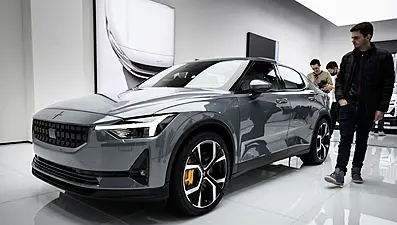
“The decision to put your savings into buying the car outright versus paying to finance one often depends on so many variables in that person’s life and whether they want to invest in driving a newer car, or prefer to own their car outright.
"With the array of EV cars on the market and the frequency in which the technology is changing it suits a lot of our customers to finance their new car. This is because our personal contract purchase (PCP) product, called BMW Select, features a Guaranteed Future Value MFV.
"This means that BMW Financial Services Ireland guarantees the future value of the car, a safety net insulating the customer against fluctuations in the value of used cars and the best thing is that the customer gets the benefit if the value is higher than the amount underwritten.
"We put the customer at the heart of everything we do and is why we offer a simple and transparent solutions for customer vehicle financing.”
